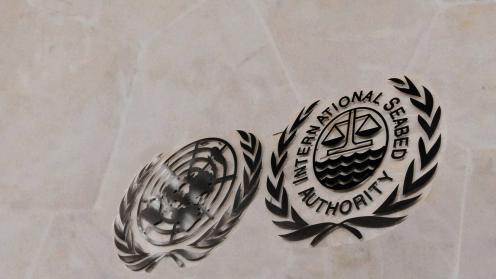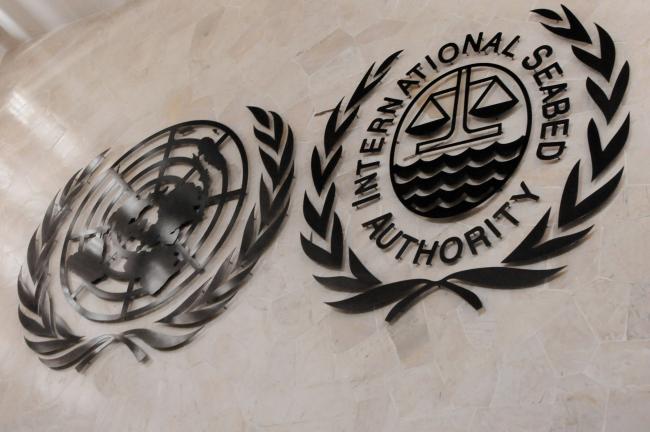About
Environmental externalities, underwater cultural heritage, test mining, regional environmental management plans, environmental compensation fund, royalties, safety measures… The list goes on. New elements continue to be added to the already complex and interlinked group of elements that need to be agreed on in the negotiations on exploitation regulations for deep-sea mining.
Final report
Summary report 18–29 March 2024
All coverage
The debate over the commercial exploitation of deep-sea mineral resources has been attracting increasing interest over the last few years, including by policymakers, the environmental community, deep-sea mining companies, the media, and the general public. Negotiations under the International Seabed Authority (ISA) are critical, trying to balance often polarized views on the prospect of commercial deep-sea mining.
To date, 24 countries have expressed support for a moratorium or precautionary pause on deep-sea mining; others favor commercial activities, calling for expediting the development of an adequate regulatory framework. Each side’s arguments over commercial deep-sea mining are well established. Those in favor of mining stress that the deep-sea environment can supply minerals, such as nickel, manganese, cobalt, and copper, necessary for a worldwide energy transition, further pointing towards unsustainable practices in land mining. Those opposed emphasize the numerous challenges the ocean faces, including pollution, overfishing, biodiversity and habitat loss, acidification, rising water temperatures, and climate change. They underscore the need to protect these largely unknown deep-sea ecosystems, prior to authorizing destructive, extractive activities.
The ISA is the body responsible for organizing and regulating all mineral-related activities in the seabed beyond the limits of national jurisdiction. Negotiations are framed around the “Mining Code,” which is the set of rules, regulations, and procedures to regulate prospecting, exploration, and exploitation of seabed minerals. Following the issuance of regulations on Prospecting and Exploration, the development of regulations for the exploitation of mineral resources is currently the main agenda item.
Negotiations on the exploitation regulations have been organized, so far, under thematic clusters and discussed in respective working groups on:
- the protection and preservation of the marine environment;
- financial issues around deep-sea mining contracts;
- inspection, compliance, and enforcement;
- institutional matters; and
- remaining topics, organized under what was called “the President’s text.”
The 29th annual session of the ISA addressed, for the first time, a consolidated text of the draft exploitation regulations and incorporate outcomes of intersessional work on: the inspection mechanism; coastal state obligations; underwater cultural heritage; the environmental impact assessment process; test mining; and health and safety plans.
During the second part of the 28th session (10-21 July 2023), the ISA Council expressed its intention to continue the elaboration of the exploitation regulations with a view to their adoption during the 30th ISA session in 2025. It further decided that if the exploitation regulations are not completed by July 2024, the Council will assess remaining work and consider another roadmap to that end.
The 29th ISA session will be held in two parts in March and July 2024. Part I included meetings of the Legal and Technical Commission (4-15 March), held behind closed doors, and the Council (18-29 March). The Council consists of 26 ISA members. All meetings took place in ISA headquarters, in Kingston, Jamaica.
The Earth Negotiations Bulletin (ENB) writers for this meeting were Asterios Tsioumanis, Ph.D., and María Ovalle. The Digital Editor was Diego Noguera. The Editor was Pam Chasek, Ph.D.
View past and future events
Past event
23rd Annual Session of the International Seabed Authority
Past event
1st Part of the 24th Session of the International Seabed Authority
Past event
2nd Part of the 24th Session of the International Seabed Authority
Past event
1st Part of the 25th Annual Session of the International Seabed Authority (ISA)
Past event
2nd Part of the 25th Annual Session of the International Seabed Authority (ISA)
Past event
1st Part of the 26th Annual Session of the International Seabed Authority (ISA)
Past event
27th Session of the Assembly of the International Seabed Authority (ISA-27)
Past event
1st Part of the 28th Annual Session of the International Seabed Authority (ISA)
Past event
2nd Part of the 28th Annual Session of the International Seabed Authority
Past event
3rd Part of the 28th Annual Session of the International Seabed Authority
Past event
1st Part of the 29th Annual Session of the International Seabed Authority
Past event
2nd Part of the 29th Annual Session of the International Seabed Authority
To receive free coverage of global environmental events delivered to your inbox, subscribe to the ENB Update newsletter.
The ENB summary and analysis from this meeting can also be found on the Negotiator's Toolkit on UNEP's InforMEA Platform.

